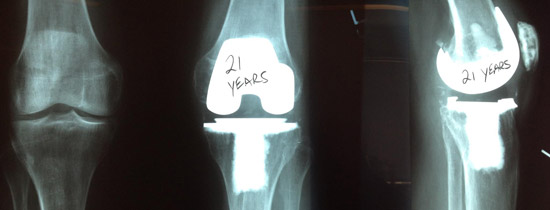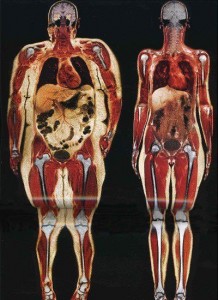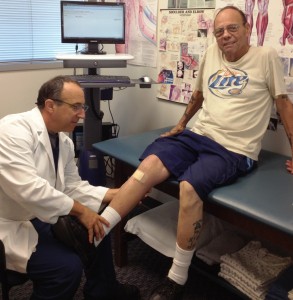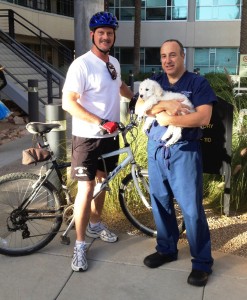Total Knee Replacement and Weight Loss and Activity
Patients often ask me if their weight has anything to do with the results of Knee replacement. The answer is a resounding YES!. I know it is so hard to lose weight – I have been trying for 30 years! (I am presently on an Atkin’s high protein, low carbohydrate diet). There is no question that “obesity” which is now defined as an increase in BMI (Body Mass Index). BMI calculators are available on Google ( www.webmd.com/diet/calc-bmi-plus ). If your BMI is over 30, then sorry- but you are considered Obese ( mine was 29.9 this morning – Really!).
It is important to lose weight and keep your BMI below 30, (18 to 25 is considered healthy for adults.) Your knee might not hurt at all if you can lose 25 pounds. It turns out that weight is multiplied in the knee with single leg stance and squatting. Stairs and kneeling and increase body forces 6 to 10 times behind the knee cap with activity. Also obesity leads to diabetes, heart disease, high blood pressure, stroke, and premature death. Why would anyone want those things!?
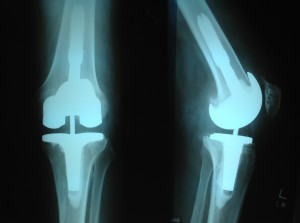
Stronger total knee implants with stems are often used in heavy patients to make them more durable over time.
Some patients add smoking and drinking excessive alcohol to the mix. YIKES! this increases the complication rates as well. Smoking constricts blood vessels and leads to necrosis of skin, non-healing wounds, and sometimes loss of toes or the foot. respiratory complications are also increased. we try to do spinal anesthesia whenever possible as it has been shown to be safer for patients in the long run. While general anesthesia complications are rare, they DO happen, and they can be catastrophic. Spinal patients “wake up” refreshed, without nausea, and ready to go into fast rehab. The femoral nerve block s we use take away 75% of the pain associated with knee surgery for at least 24 hours and are recommended for all of our knee replacements.
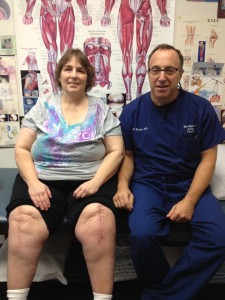
Our patients understand that weight loss is a problem, and to their credit they want to lose the weight but can’t do the exercise because of knee pain. Its a catch-22. Dr. Kozinn has been very successful treating larger patients, and it is very gratifying to watch them lose the weight AFTER the surgery.
We can recommend weight loss DOCTORS who specialize in making you more healthy – and they really do help! Unfortunately, insurance companies in all their wisdom won’t pay for the very treatment which would make them a profit in the future by keeping their insured patients more healthy. Prophylactic treatment has been shown to be very effective. Dr. Kozinn is capable of replacing a knee joint in very obese individuals. However, it is always best to try to lose some weight before your knee replacement. The anesthesia risk is less in thin people, and the recovery is faster.
The results show that obese patients have good results with knee replacement, but possibly because their activity levels are less. you could see how a 50 year old thin tennis player may abuse his total knee more that a 300 pound “couch potato” that does not exercise. The biggest risk is in the 300 pound patient who likes to run and do heavy exercise or heavy labor. The revision risk is higher in that individual and we will council that patient accordingly. In the end, weight loss and regular moderate exercise is the key to a long and healthy life, both for the patient and the knee!
Read More!




